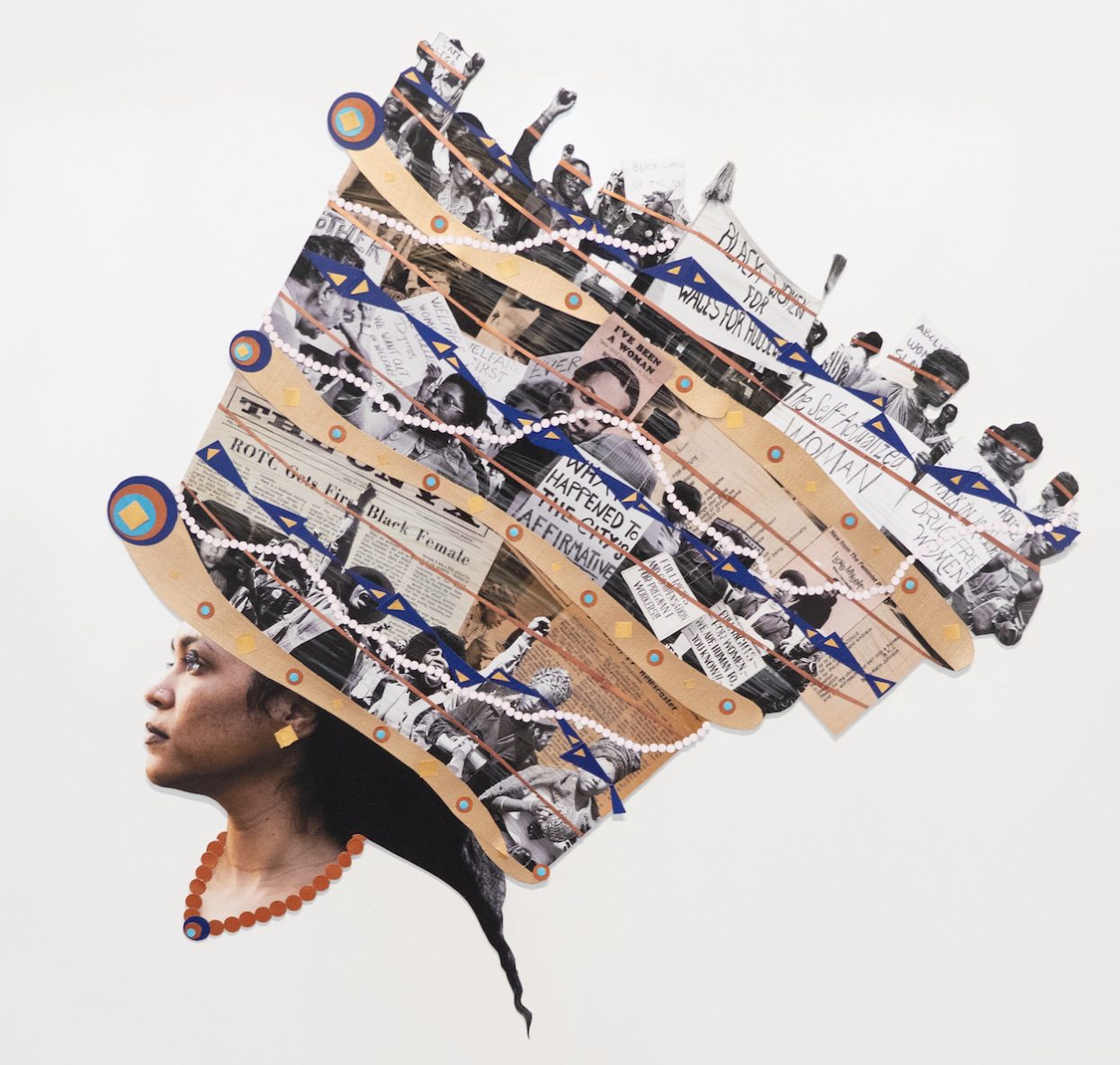Here, we ask an artist to frame the essential details behind one of their latest works.
Bio: Helina Metaferia, New York (@helina.metaferia)
Title of work: Headdress 34.
Where to see it: My concurrent solo exhibitions: “Generations” at Museum of Fine Arts in Boston (through April 11) and “All Put Together” at Praise Shadows Gallery in Brookline, MA (through April 17).
Three words to describe it: Regal, heavy, grace.
What was on your mind at the time: The oft-overlooked and under-documented labor of BIPOC women across generations within activist histories.
An interesting feature that’s not immediately noticeable: I don’t use Photoshop to make my collages. I’m very tactile and am always printing and cutting them by hand in my studio. That’s not easy to tell when looking at a .jpg. Also, I don’t use images from the internet in my collages. All the archives come from extensive library research, where librarians are my collaborators, and a bibliography accompanies each collage. The models are either activists on the front line, or participants of my performance-as-protest workshop that I facilitate nationally. Each collage comes from a meaningful exchange with another human.
How it reflects your practice as a whole: As an artist who works very interdisciplinary, I’m attracted to certain mediums that speak to legacies of resistance. Performance is the language of activism, social practice is the langauge of community organizing, and collage has been used for decades in feminist resistence and critiques on media cutlure. I am interested in the ways activists reclaim the spectacle of the image, especially when the media and propaganda use images against them. I am curious about what gets archived in repositories, and how that process reveals biases.
One song that captures its essence: “Feeling Good” by Nina Simone.

